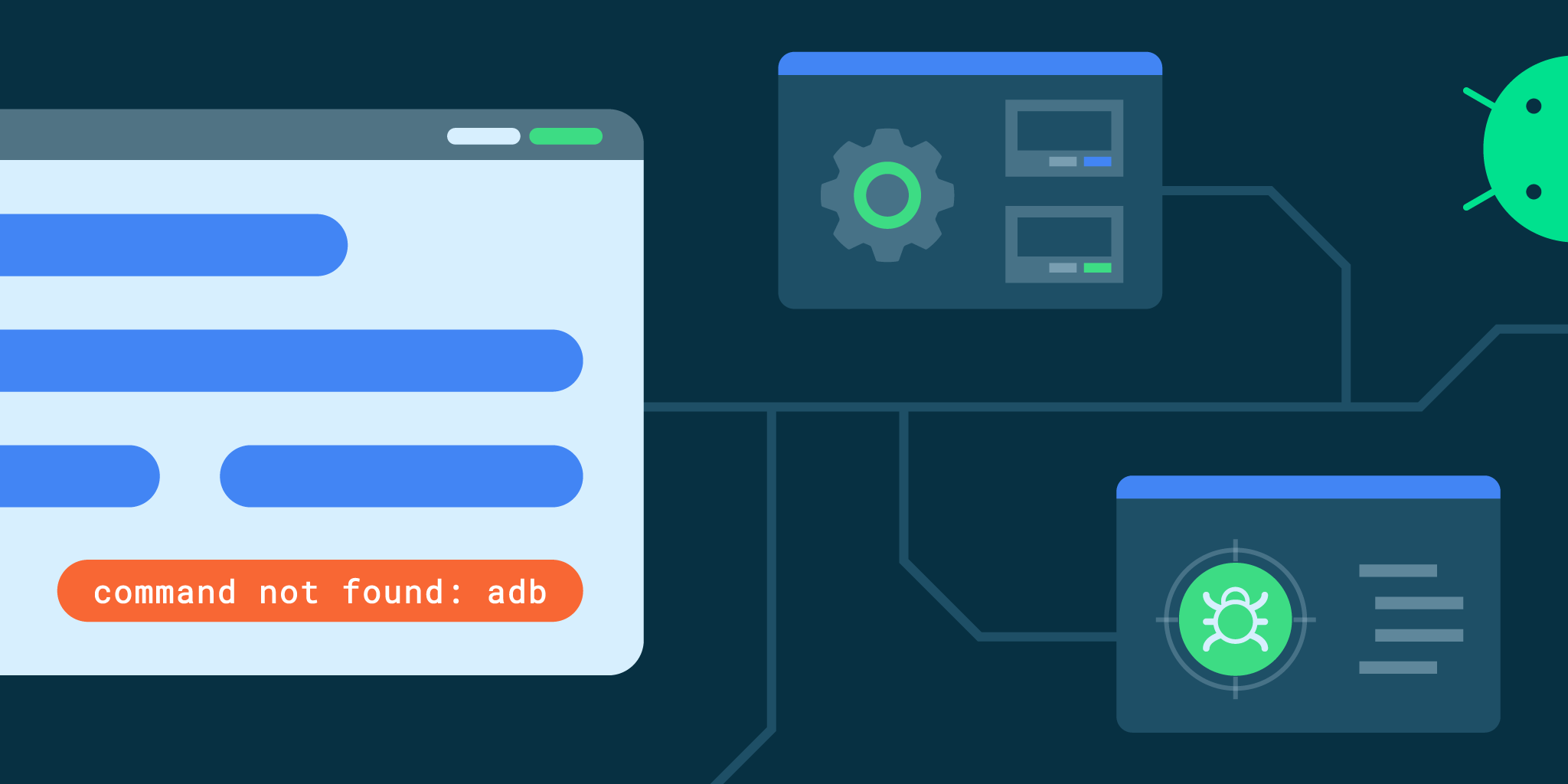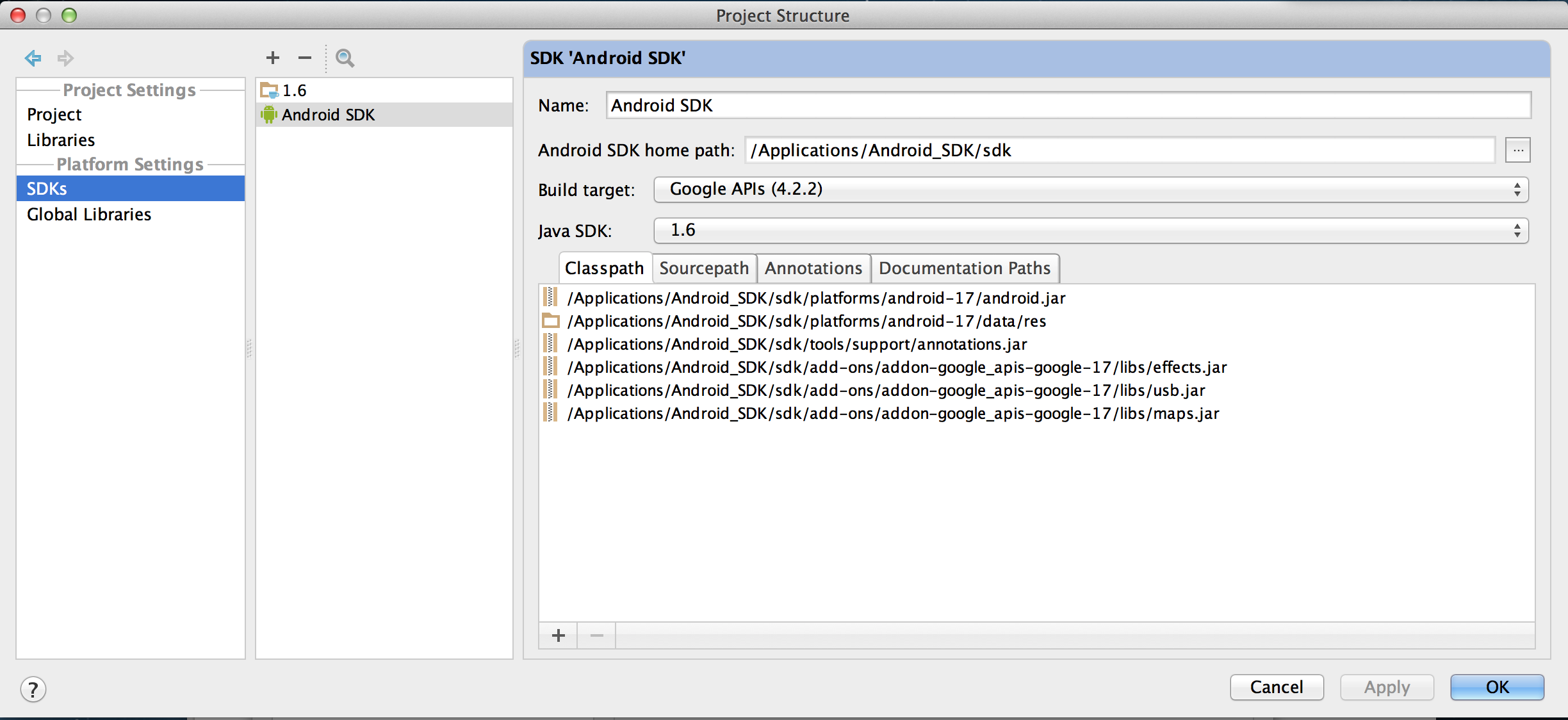Question or issue on macOS:
- Macos Android Studio Sdk Pathway
- Macos Android Studio Sdk Path Software
- Add Android Sdk To Path
- Android Sdk Path
You can find the path going into Android Studio - Configure - SDK Manager - On the top left it should say SDK Path. I don't think it's necessary to install the sdk separately, as the default option for Android Studio is to install the latest sdk too. The Dart SDK has the libraries and command-line tools that you need to develop Dart command-line, server, and non-Flutter web apps. For details, see the Dart SDK overview. As of Flutter 1.21, the Flutter SDK includes the full Dart SDK. So if you have Flutter installed, you might not need to explicitly download the Dart SDK. Select the SDK version under the macOS section and click Delete. Remove all the content from the SDK folder on the machine where RAD Studio is installed. The SDK folder is located at Documents Embarcadero Studio SDKs. Remove the scratch-dir folder located at the PAServer directory on the macOS. After launching the SDK Manager from Android Studio, I realized the new path is /Users/$USER/Library/Android/sdk/tools. Open your /.bashprofile file by issuing the command open /.bashprofile on the terminal. Add the following lines to the end of that file. Export PATH=/Users/$USER/Library/Android/sdk/tools:$PATH; export PATH=/Users/$USER/Library/Android/sdk/tools/bin:$PATH. Open the SDK Manager from Android Studio by clicking Tools SDK Manager or click SDK Manager in the toolbar. Click the checkbox next to Android SDK Platform-Tools so it shows a checkmark. A download icon should appear in the left column. Click Apply or OK. Known issues with the Android Gradle Plugin.
I have installed Android Studio on my MacBook Air (OS Version 10.11 El Capitan) and have successfully written a small 'hello, world' app and installed on device (Nexus 7) and ran on AVD. All I want to do now is be able to build the app and install it on device from the command line as opposed to Android Studio. I'm following the directions here:
http://developer.android.com/training/basics/firstapp/running-app.html
and the relevant line is:
Make sure the Android SDK platform-tools/ directory is included in your PATH environment variable, then execute:
Macos Android Studio Sdk Pathway
The problem is I can't find the Android SDK on my machine! I assume it's there because otherwise the program wouldn't compile and run through Android Studio? Perhaps that's a bad assumption? I'm new to Macs (I'm used to Windows) so I don't know the best way to search for the Android SDK. So my questions:
How to solve this problem?
Solution no. 1:
1. How to find it
- Open Android studio, go to Android Studio > Preferences
- Search for
sdk - Something similar to this (this is a Windows box as you can see) will show
You can see the location there – most of the time it is:
2. How to install it, if not there
- Go to Android standalone SDK download page
- Download the zip file for macOS
- Extract it to a directory
3. How to add it to the path
Open your Terminal edit your ~/.bash_profile file in nano by typing:
If you use Zsh, edit ~/.zshrc instead.

Go to the end of the file and add the directory path to your $PATH:
- Save it by pressing
Ctrl+X - Restart the Terminal
- To see if it is working or not, type in the name of any file or binary which are inside the directories that you've added (e.g.
adb) and verify it is opened/executed
Solution no. 2:
If you don't want to open Android Studio just to modify your path…
They live here with a default installation:
Here's what you want to add to your .bashwhatever
Solution no. 3:
Find the Android SDK location Create a .bash_profile file for your environment variables- Open the Terminal app
- Go to your home directory via
cd ~ - Create the file with
touch .bash_profile
- Open the file via
open .bash_profile Add
export PATH=$PATH:[your SDK location]/platform-toolsto the file and hit⌘sto save it. By default it's:export PATH=$PATH:/Users/yourUserName/Library/Android/sdk/platform-toolsGo back to your Terminal App and load the variable with
source ~/.bash_profile
Solution no. 4:
How do I find Android SDK on my machine? Or prove to myself it's not there?

Go to the end of the file and add the directory path to your $PATH:
- Save it by pressing
Ctrl+X - Restart the Terminal
- To see if it is working or not, type in the name of any file or binary which are inside the directories that you've added (e.g.
adb) and verify it is opened/executed
Solution no. 2:
If you don't want to open Android Studio just to modify your path…
They live here with a default installation:
Here's what you want to add to your .bashwhatever
Solution no. 3:
Find the Android SDK location Create a .bash_profile file for your environment variables- Open the Terminal app
- Go to your home directory via
cd ~ - Create the file with
touch .bash_profile
- Open the file via
open .bash_profile Add
export PATH=$PATH:[your SDK location]/platform-toolsto the file and hit⌘sto save it. By default it's:export PATH=$PATH:/Users/yourUserName/Library/Android/sdk/platform-toolsGo back to your Terminal App and load the variable with
source ~/.bash_profile
Solution no. 4:
How do I find Android SDK on my machine? Or prove to myself it's not there?
When you install Android studio, it allows you to choose if you want to download SDK or not
If it's not there how do I install it?
you can get SDK from here http://developer.android.com/sdk/index.html
How do I change PATH to include Android SDK?
Macos Android Studio Sdk Path Software
in Android Studio click in File >> Settings
Solution no. 5:
Flash image to sd card. If Android Studio shows you the path /Users//Library/Android/sdk
but you can not find it in your folder, just right-click and select 'Show View Option'. There you will be able to select 'Show Library Folder'; select it and you can access the SDK.
Solution no. 6:
The default path of Android SDK is /Users//Library/Android/sdk, you can refer to this post.
add this to your .bash_profile to add the environment variable
Then save the file.
load it
Solution no. 7:
Add Android Sdk To Path
AndroidStudioFrontScreenI simply double clicked the Android dmg install file that I saved on the hard drive and when the initial screen came up I dragged the icon for Android Studio into the Applications folder, now I know where it is!!! Also when you run it, be sure to right click the Android Studio while on the Dock and select 'Options' -> 'Keep on Dock'.
Everything else works.
Dr. Roger Webster

